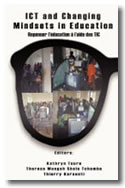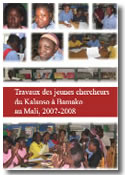Reflections on cultural imperialism and pedagogical possibilities emerging from youth encounters with internet in Africa July 10, 2008
Many academic and popular writers have warned that the internet could be another form of cultural imperialism used by corporate-led western powers to force feed western values and worldviews to the rest of the world, similar to how Western education was imposed on Africa after colonisation. These ongoing arguments about one-way flows of information that shape African minds in Western moulds reinforce desires for dominance and promote an attitude of victimization. Others perceive internet as a panacea to social problems without considering the context in which it would or could be appropriate. This paper draws on research undertaken in 36 primary and secondary schools in five West and Central African countries to look at pedagogical opportunities educators and learners bring to African schools as they use computers and internet in teaching and learning processes. We argue that if appropriated in reflective and creative ways, the internet can become a tool for affirming African values such as community and interdependence. In addition, the internet can be used by teachers and students to help develop critical attitudes as opposed to promoting individualism and consumerism, linked with Western values. Critical and emancipatory pedagogies are part of the process necessary to challenge structural phenomena such as profit-driven globalisation that impoverish, silence, exclude and limit creativity.
Toure, K., Diarra, M.L., Karsenti, T., Tchaméni-Ngamo, S. (2008). Africa. In K. Toure, TM.S. Tchombe, & T. Karsenti, (Eds.), ICT and Changing Mindsets in Education / Repenser l’éducation à l’aide des TIC (pp. 7-24). Bamenda, Cameroon: Langaa; Bamako, Mali: ERNWACA / ROCARE.



Leave a Reply